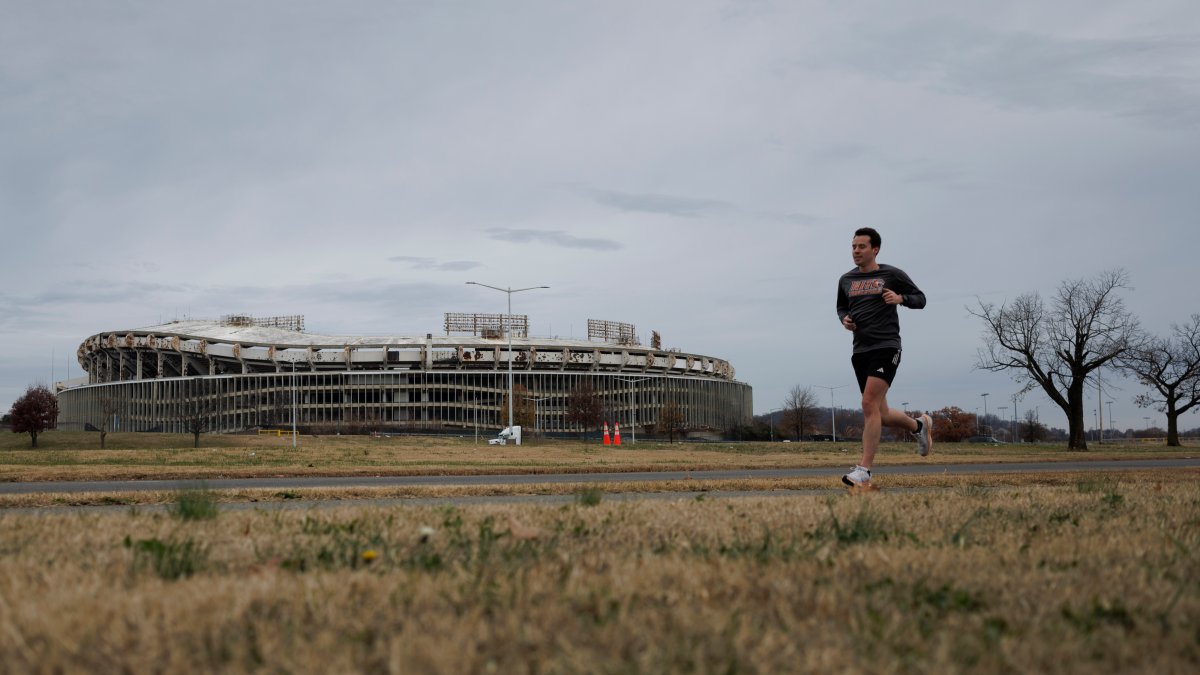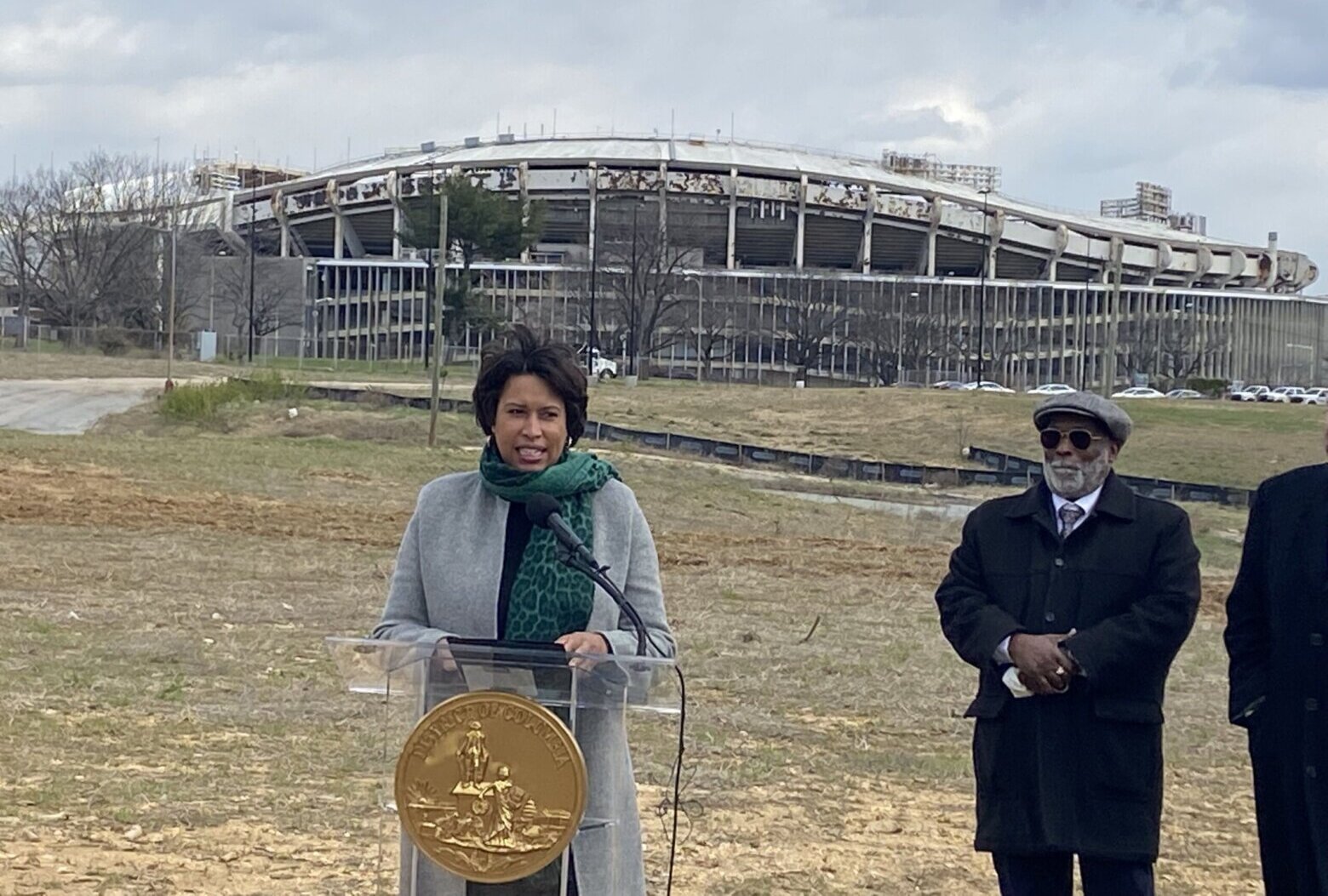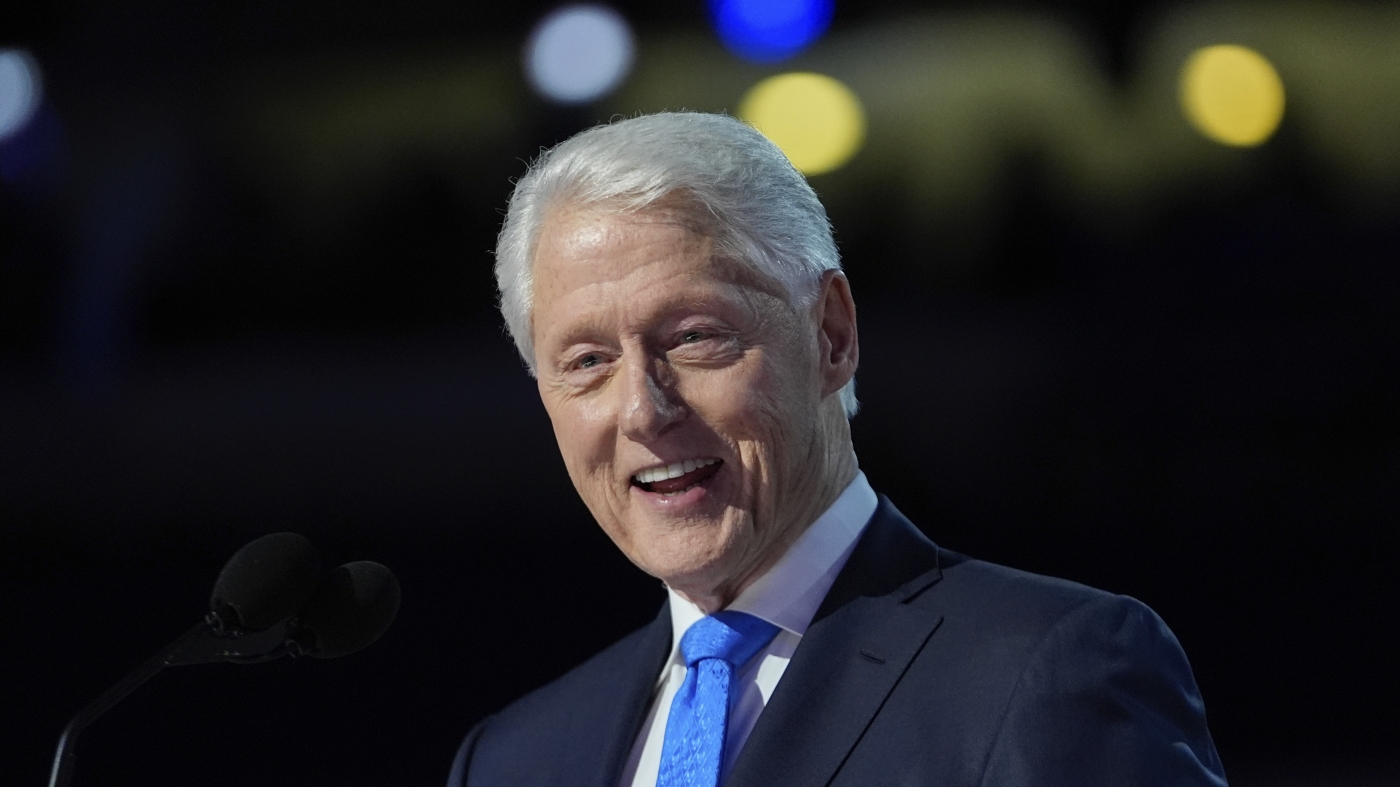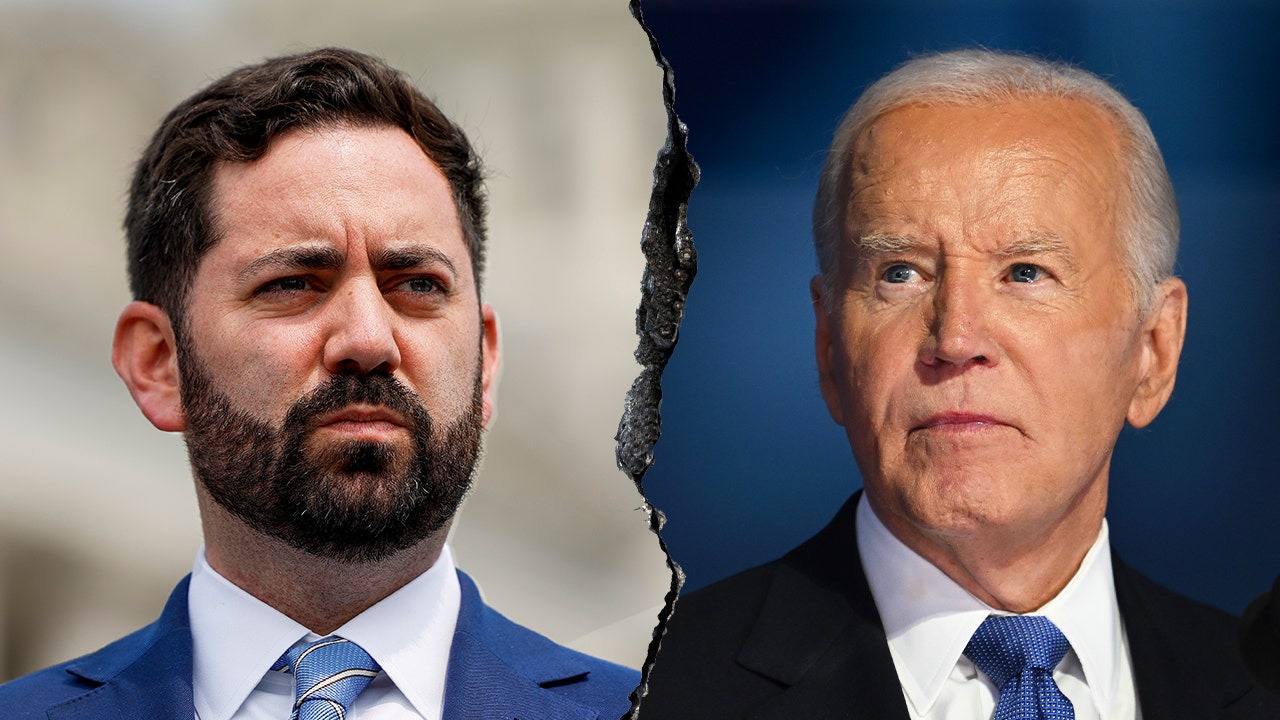Politics
Video: Republicans Nominate Louisiana’s Mike Johnson for House Speaker

new video loaded: Republicans Nominate Louisiana’s Mike Johnson for House Speaker
transcript
transcript
Republicans Nominate Louisiana’s Mike Johnson for House Speaker
Representative Mike Johnson of Louisiana was nominated for speaker in a secret-ballot vote by his peers, hours after Representative Tom Emmer of Minnesota withdrew his bid in the face of swift party backlash.
-
Democracy is messy sometimes, but it is our system. This conference that you see, this House Republican majority, is united. Is united. [applause] I’m honored to have the support of my colleagues. And what they understand about this, is this is servant leadership. We’re going to serve the people of this country.
Recent episodes in U.S. & Politics

Politics
Who Are Elon Musk’s Friends, Investors and Family?

A look at the people who influence the world’s richest man, and those who stand to gain from their association with him now.
Elon Musk occupies a rare place at the center of American power.
As the “first buddy,” he has won the ear of President-elect Donald J. Trump, having spent over $250 million in the final months of 2024 to help him get elected. Mr. Musk has appeared in family photos at Mar-a-Lago and joined Mr. Trump on calls with world leaders and chief executives.
Mr. Musk has never had more influence over business, global politics and the American democratic system. He helped kill bipartisan legislation in Congress to avoid a government shutdown, though a bill was later passed.
Where does he go from here?
These are the people who influence Mr. Musk right now, and those whom he influences in turn. They are longtime friends, investors, staff members or party buddies — and sometimes, those boundaries blur.
They shape how Mr. Musk operates and views the world. Many have propped him up, in the good times and the bad, and some now stand to gain from his new position in U.S. politics.

These people have fueled Mr. Musk and his businesses. Over the years, they’ve invested millions of dollars in SpaceX, Tesla, Neuralink, the Boring Company, X and xAI. Some have gained board seats or become close friends with Mr. Musk for their loyalty.
Steve Jurvetson
Mr. Jurvetson is a longtime Silicon Valley venture capitalist and was an early investor in Mr. Musk’s SpaceX, where he is a board member. He is also a superfan of Mr. Musk’s. On a podcast in 2020, he praised the billionaire for being “the greatest gift of the American dream living right now.”
Marc Andreessen
The venture capitalist is one of Mr. Musk’s big financial supporters in Silicon Valley: His firm, Andreessen Horowitz, has backed SpaceX, X and xAI.
Shaun Maguire
A partner at Sequoia Capital, Mr. Maguire led the firm’s deals into Mr. Musk’s SpaceX, X, xAI and Boring Company, a tunneling venture. He has played a big role in Mr. Musk’s work during the presidential transition.
John Hering
Mr. Hering, a venture capitalist, invests in Mr. Musk’s companies and has become a trusted adviser. Recently, Mr. Hering has spent time in Palm Beach, Fla., helping with the presidential transition.
Peter Thiel
Mr. Thiel and Mr. Musk are members of the so-called PayPal Mafia, a group of founders and early employees of the payments company. While Mr. Thiel helped oust Mr. Musk from the company decades ago, he has recently become a political ally and supporter. Vice President-elect JD Vance once worked for Mr. Thiel’s venture capital firm, and Mr. Thiel was the one who introduced the running mates.
Roelof Botha
A fellow South African, Mr. Botha was a member of the PayPal Mafia. Now, as the managing partner of Sequoia Capital, he oversees the venture firm’s various investments into Mr. Musk’s companies, including X and xAI.
Larry Ellison
Mr. Ellison, the co-founder of Oracle, is a self-described good friend of Mr. Musk’s and has taken part in some Trump transition meetings. When Mr. Musk bought Twitter in 2022, Mr. Ellison committed $1 billion to the deal.
Mr. Musk’s friends come from different areas of his life. Some started as colleagues or investors, but later developed personal relationships with the billionaire — to the point where they’ve attended Burning Man or vacationed together.
Mr. Musk has also grown close with a number of figures in the tech scene around Austin, where he has been relocating some of his companies’ operations to, away from the San Francisco area.
Antonio Gracias
Mr. Gracias is one of Mr. Musk’s oldest friends; he was an early investor in SpaceX, Tesla and other companies, and he helped fund a pro-Trump super PAC started by Mr. Musk.
Ken Howery
A co-founder of PayPal, Mr. Howery is very involved in Republican politics. He and Mr. Musk are part of the same social circles in Austin.
Michael Kives
Mr. Musk has sometimes stayed with Mr. Kives, a Hollywood agent and Democratic financier, when he is in Los Angeles.
Luke Nosek
A close friend in Texas now and active in conservative politics, Mr. Nosek is one of the several entrepreneurs who helped start PayPal.
David Sacks
A PayPal Mafia associate, Mr. Sacks is a longtime friend who has grown closer to Mr. Musk after the acquisition of Twitter and his rightward political shift. Mr. Sacks has been picked to a tech position in Mr. Trump’s White House.
Sriram Krishnan
A former venture capitalist at Andreessen Horowitz, Mr. Krishnan was part of the crew that took over Twitter after Mr. Musk bought it. President-elect Trump recently tapped him to work with Mr. Sacks on artificial intelligence initiatives.
Joe Lonsdale
A co-founder of the software company Palantir, which has numerous Defense Department contracts, Mr. Lonsdale provided guidance to Mr. Musk’s pro-Trump super PAC and has helped advise the world’s richest man on the presidential transition.
Rupert Murdoch
Mr. Musk dined at Mr. Murdoch’s apartment just before Election Day. The media mogul has remained close with Mr. Musk even as his flagship newspaper, The Wall Street Journal, has reported critically on him.
James Murdoch
A current Tesla board member, as well as a SpaceX investor and a son of Rupert Murdoch’s, James Murdoch and Mr. Musk are friends who have vacationed together.
Joe Gebbia
A former Airbnb executive, Mr. Gebbia sits on Tesla’s board and is also part of the crowd that Mr. Musk hangs out with in Austin.
Jason Calacanis
A start-up investor and podcaster, Mr. Calacanis has been a longtime supporter of Mr. Musk’s from the early days at Tesla. He has attended Burning Man with Mr. Musk and most recently advised the billionaire during the takeover of Twitter.
Michael Dell
The billionaires have become closer as Mr. Musk has made Austin his home base. Mr. Dell has voiced his support of the government efficiency department and is developing computing infrastructure to help power Mr. Musk’s xAI.
Ari Emanuel
The Hollywood media mogul has grown close to Mr. Musk, who once sat on the board of his company, Endeavor. The SpaceX chief has vacationed with Mr. Emanuel and attended his wedding. Endeavor has also invested in X.
Robin Ren
Mr. Ren attended the University of Pennsylvania with Mr. Musk, who considered him to be better at physics during that time. Mr. Ren went on to work at Tesla as a vice president of business development and, for a time, led the company’s expansion into China. He also invested in Mr. Musk’s Twitter takeover.
Joe Rogan
The popular podcaster has hung out with Mr. Musk in Austin. Mr. Musk has appeared on his show five times in the last six years.
Mr. Musk has a large, complicated family. He has fathered at least 12 children with three different partners. He sometimes mixes business with family matters. His brother has sat on the boards of his companies, while his mother and young son have sat in on meetings for his companies and for his newly formed Department of Government Efficiency.
Kimbal Musk
Kimbal, Mr. Musk’s brother, has been a close confidant for years. He runs a restaurant business in Denver, but has long been involved in Elon’s companies: He was an early SpaceX and Tesla board member, in addition to advising on smaller endeavors.
James Musk
Mr. Musk’s younger cousin James now works as a trust engineer at X, after following Mr. Musk from company to company.
Errol Musk
Mr. Musk told a biographer that he and his father, Errol, are sometimes estranged, but Errol has said the two are in frequent contact. He has visited his son in Texas.
Tosca Musk
Mr. Musk’s sister, Tosca, is the head of a production company that focuses on adapting romance novels and erotic fan fiction. She has been a big Democratic donor, and helped host a fund-raiser for Stacey Abrams, the 2022 Democratic gubernatorial candidate for Georgia.
Grimes
The pop singer, born Claire Boucher, is the mother of three of Mr. Musk’s children and has been engaged in custody battles wtih him.
X Æ A-12 Musk
Mr. Musk’s eldest son with Grimes, the four-year-old X, as he is commonly known, has been a frequent presence with his father at his companies’ various offices and at Mar-a-Lago.
Justine Wilson Musk
Mr. Musk’s first wife and the mother of five of his eldest children, she helps parent some of those children with him. (Though one of the children, Vivian, has cut off ties with her father.)
Talulah Riley
Ms. Riley, an actress, is Mr. Musk’s second wife, having married and divorced him twice. They remain in contact.
Shivon Zilis
A former venture capitalist and current executive at Neuralink, Ms. Zilis is the mother of at least three children with Mr. Musk. She has been spotted at Mar-a-Lago after the election.
Maye Musk
Mr. Musk’s mother, a model and dietitian, frequently attends social and political events with her son.
With Mr. Musk leading six different companies, he’s kept a small circle of trusted advisers and deputies across those organizations to maintain operations. Some of these men and women have worked with Mr. Musk for more than a decade and joined Tesla or SpaceX in the early days, when neither company was a guaranteed success. Some of these lieutenants move from job to job with Mr. Musk as he deploys them on the latest issue he’s deemed important.
Alex Spiro
Mr. Spiro, an attorney with high-profile clients, notably defended Mr. Musk in a defamation lawsuit after the billionaire called a British cave explorer a “pedo guy” on Twitter in 2018. Recently, Mr. Spiro has become Mr. Musk’s attack dog against government regulators.
Chris Young
Mr. Young, a top Republican field operative, was hired to be Mr. Musk’s political adviser earlier this year. They did not know each other before the election, but Mr. Young has led Mr. Musk’s tactical work in Republican politics.
Terrence J. O’Shaughnessy
Mr. O’Shaughnessy, a retired Air Force general known as “Shags,” is one of Mr. Musk’s top lieutenants at SpaceX. He was recently pushed as a candidate for a Defense Department job.
Mark Juncosa
As the vice president of vehicle engineering at SpaceX, Mr. Juncosa has worked his way up the ranks in his more than 13 years at the company. He is one of Mr. Musk’s most trusted engineers.
Omead Afshar
Mr. Afshar, one of Mr. Musk’s right-hand men, previously oversaw the construction of Tesla’s factory in Austin, and is now involved with the production of the Starship rocket at SpaceX.
Tim Hughes
As a senior government affairs executive at SpaceX, Mr. Hughes has become vital to Mr. Musk as the company has looked to spread its influence and its satellite internet service, Starlink, outside the United States. Mr. Musk has put forth Mr. Hughes as a potential hire for the Department of Defense.
Ira Ehrenpreis
A current Tesla board member, Mr. Ehrenpreis helped push through a controversial pay package at Tesla that helped make Mr. Musk the richest man in the world.
Jared Birchall
Mr. Birchall, a former wealth manager at Morgan Stanley, is the longtime head of Mr. Musk’s family office, as well as of the Musk Foundation. He has also been advising the presidential transition.
Jehn Balajadia
Though she has the title of “operations coordinator” at the Boring Company, Ms. Balajadia is effectively Mr. Musk’s secretary, helping him with day-to-day tasks and scheduling. She often follows him as he travels, and was ever-present during his acqusition of Twitter.
Linda Yaccarino
A former executive at NBCUniversal, Ms. Yaccarino is the chief executive of X — and often parrots his political views and talking points.
Robyn Denholm
As the chair of Tesla’s board, the Australian business executive has exerted little oversight over Mr. Musk, who had to step down from his role as chairman after his fight with the Securities and Exchange Commission in 2018.
Tom Zhu
A senior vice preisdent at Tesla who oversees much of the company’s operations in China, an increasingly important market for the electric automaker.
Franz von Holzhausen
The lead designer at Tesla, he has been known to appear onstage with Mr. Musk during launch events. He has worked at the company for nearly 16 years and is one of Tesla’s longest-serving employees.
Ross Nordeen
One of Musk’s most trusted engineers, he has moved from Tesla to X and now to xAI. He has worked closely with Mr. Musk’s cousin James.
Steve Davis
Few people on this list have earned Mr. Musk’s trust more than Mr. Davis, who is often called upon to help with special situations. Mr. Davis, who by day is an executive at the Boring Company, has effectively led Mr. Musk’s work on the presidential transition.
Gwynne Shotwell
The second most powerful person at SpaceX, she has overseen the day-to-day operations of the rocket company as it has grown to be a major contractor of NASA and the Defense Department.
Mr. Musk’s introduction into the MAGA world has been swift, after his public endorsement of Mr. Trump’s candidacy in July. Since the election, Mr. Musk has become almost inseparable from the president-elect, building fast friendships not only with Mr. Trump, but also with some of his closest advisers. These alliances will become even more important, as Mr. Musk has said he will push to slash federal spending with his government efficiency organization.
Alex Lorusso
A business partner of Benny Johnson’s, the conservative media personality, Mr. Lorusso was a paid consultant for Mr. Musk’s super PAC. Mr. Lorusso is one of the several-high profile conservative voices who was once barred on Twitter and later reinstated by Mr. Musk.
Tucker Carlson
Before leaving Fox News, Mr. Carlson interviewed Mr. Musk for one of his last shows. Since then, the pair have bonded. Mr. Carlson posts episodes of his new online show on X, and has become one of Mr. Musk’s biggest defenders in media.
Vivek Ramaswamy
Leading up to the election, the pharmaceutical entrepreneur turned Republican presidential candidate was frequently cited online by Mr. Musk. Now, the two will be the co-leaders of the government efficiency department in an attempt to slash $2 trillion from the federal budget.
Stephen Miller
Mr. Musk has backed some of Mr. Miller’s prior political work. And the Trump senior adviser, known for his vocal stances on immigration issues that Mr. Musk cares deeply about, has worked side-by-side with the billionaire during the transition.
Nelson Peltz
Mr. Peltz has described himself as the “matchmaker” between Mr. Trump and Mr. Musk. Mr. Peltz, an activist investor, hosted a dinner at his home in Palm Beach this February where Mr. Musk first voiced his desire to become involved with the election.
Donald Trump
Though they did not know each other well six months ago, the two have appeared insperable since the election. Mr. Trump tapped Mr. Musk to be the co-head of the new effort to downsize government, and publicly, they often seem to be mesmerized by each other.
Politics
Johnson allies urge Trump to intervene as messy speaker battle threatens to delay 2024 certification

Allies of Speaker Mike Johnson, R-La., are urging President-elect Trump to publicly reaffirm support for the House GOP leader to avoid a messy, protracted battle that could delay the certification of his own victory.
“If we have some kind of protracted fight where we can’t elect a speaker — the speaker’s not elected; we’re not sworn in. And if we’re not sworn in, we can’t certify the election,” Rep. Carlos Gimenez, R-Fla., told Fox News Digital.
“I would hope that President Trump would chime in and talk to those who are maybe a little hesitant, and say, ‘We’ve got to get going. We don’t have time.’”
Meanwhile, Rep. Pat Fallon, R-Texas, told Fox News Digital “it would be immensely helpful” if Trump chimed in.
TOP TRUMP AIDES JOIN GROUP PREPPING TO SHORE UP SUPPORT FOR MAGA AGENDA
Speaker Mike Johnson’s allies are looking to President-elect Trump for help to avoid a messy, protracted speakership race (Getty Images)
“Any time would be great, but right after Christmas if President Trump said, ‘You know, listen’ — it would even be really cool if somehow Mike Johnson ended up at Mar-a-Lago for Christmas… wherever the president is,” Fallon said. “I think it would be incredibly powerful.”
House lawmakers are returning to Washington, D.C., for a chamber-wide vote to elect the speaker on Friday, Jan. 3. Just days later, on Monday, Jan. 6, the House will meet to certify the results of the 2024 election.
Johnson is facing a potentially bruising battle to win the speaker’s gavel for a full Congressional term, with several House Republicans vocally critical of the Louisiana Republican and his handling of government funding.
His predecessor went through 14 public defeats in his quest to win the gavel, finally securing it after days of negotiations with holdouts on the 15th House-wide vote.
When he was ousted, Johnson won after a three-week inter-GOP battle that saw Congress paralyzed for its duration.
But some House Republicans are now warning that they can afford few delays in what Trump himself said he hopes will be a very active first 100 days of his second term.
“To ensure President Trump can take office and hit the ground running on Jan. 20, we must be able to certify the 2024 election on Jan. 6. However, without a speaker, we cannot complete this process,” Rep. Claudia Tenney, R-N.Y., told Fox News Digital.
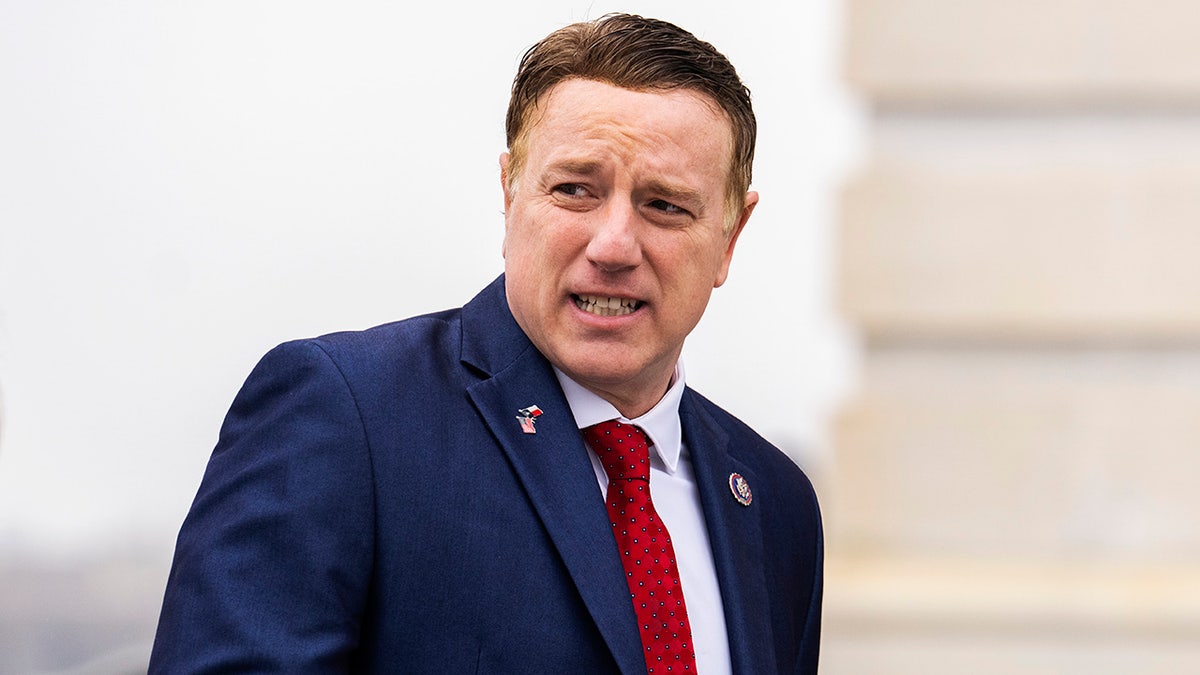
Rep. Pat Fallon, R-Texas, is one of Johnson’s defenders (Tom Williams/CQ-Roll Call, Inc via Getty Images)
Tenney warned it could delay “the launch of his agenda.”
Congress narrowly avoided a partial government shutdown hours after the Dec. 20 federal funding deadline, passing a bill to extend that deadline to March 14 while also extending several other key programs and replenishing the FEMA Disaster Relief Fund.
It angered GOP hardliners who opposed the addition of unrelated policy riders to what they believed would be a more straightforward government funding extension.
Johnson also tried and failed to heed Trump’s demand to pair action on the debt limit — which was suspended until January 2025 — with his government funding bill, after 38 House Republicans and all but two Democrats voted against it.
Fallon told Fox News Digital that it did not necessarily mean they would defy Trump if he backed Johnson again ahead of Jan. 3.
“”Some of the people in the 38 — that was more of a principle thing…they really want to attack the debt,” Fallon said. “They felt like just letting the debt ceiling lapse for two years…they like to use that as a negotiating tool to say, ‘Let’s reduce the debt to GDP ratio.’”
SENATE PASSES BILL TO STOP SHUTDOWN, SENDING IT TO PRESIDENT BIDEN’S DESK
But one of Johnson’s biggest critics, Rep. Thomas Massie, R-Ky., has already told reporters he is not voting for Johnson next year.
Two more, House Freedom Caucus Chairman Andy Harris, R-Md., and Rep. Michael Cloud, R-Texas, suggested they were no longer committed to backing Johnson over the weekend.
Meanwhile, there have been media reports that Trump is unhappy with how Johnson handled government funding and that his demand for the debt limit was not heeded.
Trump himself has not mentioned Johnson publicly since the Friday vote. But top Trump allies, like Sen. Ted Cruz, R-Texas, have come to Johnson’s defense.
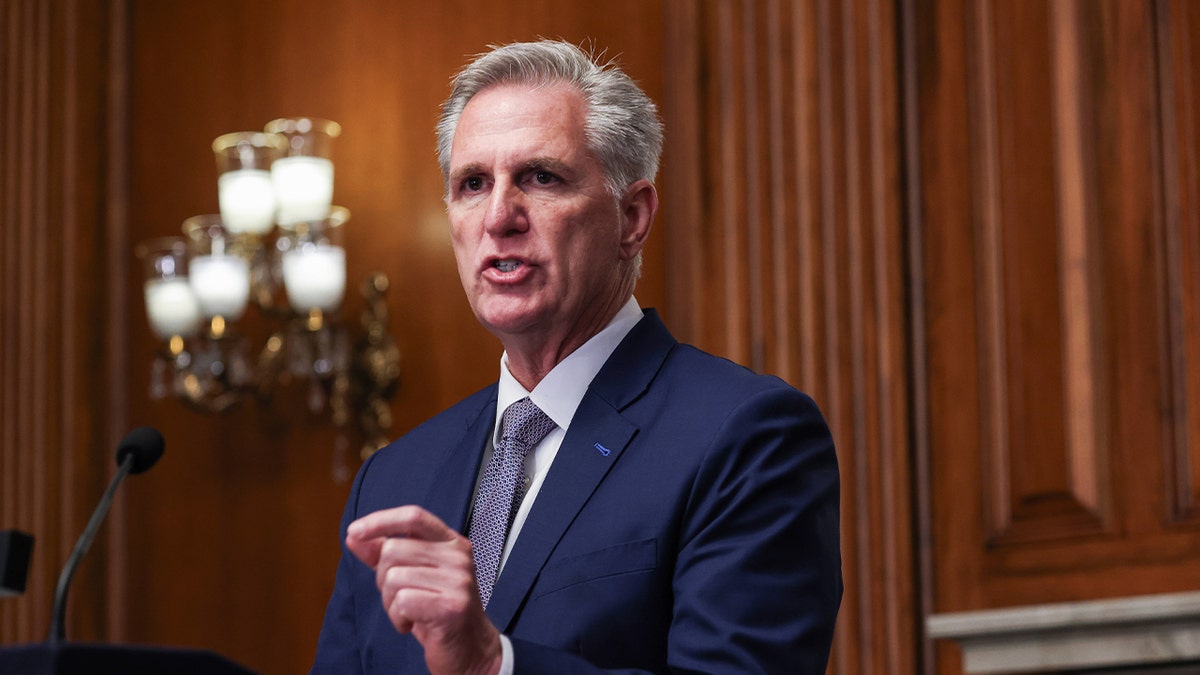
It took 15 rounds of voting for ex-Speaker Kevin McCarthy to win the gavel (Valerie Plesch)
“He’s undoubtedly the most conservative Speaker of the House we’ve had in our lifetime,” Cruz said on his podcast “The Verdict.” “If Mike Johnson is toppled as Speaker of the House, we will end up with a speaker of the House who is much, much more liberal than Mike Johnson.”
Others have also signaled that Trump’s influence will weigh heavily on what ultimately happens.
One House Republican granted anonymity to speak freely told Fox News Digital early last week that they considered opposing Johnson but said Trump would be the final deciding factor.
“I think, ultimately, it’s going to be decided who President Trump likes, because I believe that will weigh in heavily on the decision-making of that, because, currently, President Trump works very well with Mike Johnson. They have a great relationship,” Rep. Tim Burchett, R-Tenn., told CNN’s “State of the Union.”
When asked if he would support Johnson if Trump did, despite opposing his government funding plans, Burchett said “Possibly.”
Johnson will head into the Jan. 3 speaker vote with just a slim GOP margin of three votes — and is virtually unlikely to get Democratic support.
Politics
Will Trump send troops to Mexico? His pick for ambassador worries officials there
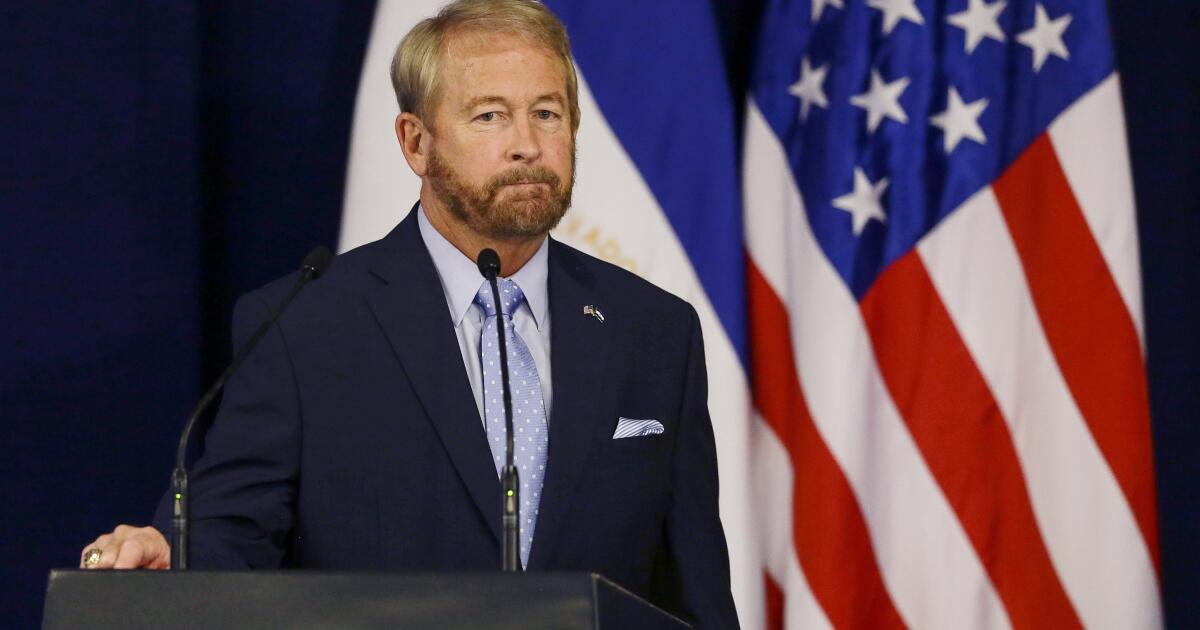
One of the more surprising foreign policy ideas the Trump team has proposed on the eve of its ascension to power is military intervention in Mexico to go after drug cartels and possibly stop migrants headed to the United States.
The idea seemed so wild and provocative — siccing U.S. troops on a peaceful neighbor — that Mexican officials figured it was nothing more than Trump bluster aimed at revving up his base.
But now President-elect Donald Trump’s choice of Ronald D. Johnson to serve as ambassador to Mexico has them wondering if he is serious.
Johnson is both a former U.S. military officer — a Green Beret — and a former CIA official. And in his previous post as U.S. ambassador to El Salvador, Johnson was an enthusiastic enforcer of Trump’s policies in support of its president, Nayib Bukele, an authoritarian widely accused of human rights abuses in a massive crackdown on gangs and in silencing dissent.
Trump has already threatened Mexico with 25% tariffs on many of its exports to the U.S. — including tomatoes, avocados, tequila and car parts — if the government of President Claudia Sheinbaum does not “do more” to stop the entry of migrants and fentanyl into the U.S. over its southern border with Mexico.
Many economists say such an action would not only blow up prices for U.S. consumers but also probably send the Mexican economy into a free fall, which in turn could spur more migration to the United States.
“Mexico can expect enormous pressure,” Maureen Meyer, programs vice president at the Washington Office on Latin America, said in an interview. The focus will be almost exclusively on immigration and law enforcement, she predicted, while “issues of concern to the human rights community — reproductive rights, climate, democracy — will all take a step back.”
She and others said that will probably be true across Latin America as a Trump government fortifies common cause with right-wing governments and parties in Argentina, Brazil and elsewhere, but will have the most impact in Mexico because of its 2,000-mile border with the United States and its close economic and cultural ties.
Johnson, not to be confused with the Republican Wisconsin senator of the same name, has resided in Florida since stepping down as ambassador to El Salvador at the end of the first Trump administration. He is an Alabama native, married with four grown children and five grandchildren, and spent time in Iraq and Afghanistan as part of his CIA duties. He also worked on counter-insurgency operations during El Salvador’s civil war in the 1980s, when the U.S. supported the right-wing government against leftist guerrillas.
“Ron will work closely with our great Secretary of State Nominee, [Florida Sen.] Marco Rubio, to promote our Nation’s security and prosperity through strong America First Foreign Policies,” Trump said on Truth Social in announcing the nomination this month.
“Together, we will put an end to migrant crime, stop the illegal flow of Fentanyl and other dangerous drugs into our Country and MAKE AMERICA SAFE AGAIN!” Trump wrote. This week, Trump added a plan to designate Mexican drug cartels as terrorists, a step that might be used as authorization for deploying U.S. troops.
In his campaign platform, Trump said he would order the Pentagon to use “special forces, cyber warfare, and other covert and overt actions to inflict maximum damage on cartel leadership, infrastructure, and operations.”
But it remains unclear how many of these steps Trump could take unilaterally. Terrorist designations usually require action by other agencies, such as the State Department, and some members of Congress who advocate a tougher approach to Mexican drug trafficking are nevertheless reluctant to send U.S. troops into the fray without approval by the Mexican government.
In Mexico, news of Johnson’s nomination was greeted warily, with many seeing a clear signal of the Trump administration’s intended, narrow focus.
Johnson’s “resume is the message,” Jorge Castañeda, a former foreign minister in Mexico, said in an essay for the Nexos news website. “Johnson has no experience in economic, commercial or financial matters. He is not coming to Mexico for that.”
Where Johnson does have ample experience is in counter-insurgency.
Johnson probably “will demand a change in the security strategy in Mexico,” said Mexican commentator León Krauze. “Trump likes spectacle, and has long considered the possibility of delivering to his electorate images of unilateral incursions into Mexican territory to arrest major drug lords, Hollywood-style.”
Many in Mexico are weary of U.S. intervention in security matters and blame the U.S. in part for backing former President Felipe Calderon’s military assault on drug cartels beginning in 2006, which sparked devastating levels of violence that persist to this day. Still others, just as exhausted by high murder and kidnapping rates, and having lost confidence in Mexican law enforcement often bought off by criminals, have started to lean toward welcoming U.S. troops.
Security cooperation between the U.S. and Mexico diminished greatly during the presidency of Andrés Manuel López Obrador, who accused U.S. forces of “abusive meddling” in 2020 when the former Mexican defense secretary, Salvador Cienfuegos, was arrested at Los Angeles International Airport on suspicion of drug trafficking.
López Obrador forced the Trump administration to return Cienfuegos to Mexico, where he was awarded a major military decoration. The damage strained U.S.-Mexico relations and hampered work in Mexico by the U.S. Drug Enforcement Administration.
Sheinbaum, who took office Oct. 1, is similarly likely to be reticent in cooperating with Trump.
After his initial threats about military attack and tariffs, she telephoned him at his resort in Mar-a-Lago and then posted on X that Mexico would cooperate with the U.S. on relevant topics, but that the country would not bend to the will of the U.S. as it had in drug war that began in 2006.
“We are going to collaborate .. but without subordinating ourselves,” she wrote. “We will always defend Mexico as a free, sovereign and independent country.”
Eschewing the military-heavy approach of some of her predecessors could set Sheinbaum on a collision course with Trump and Johnson.
Sheinbaum “is not a Bukele type,” said Rep. Jim McGovern, a Massachusetts Democrat who specializes in Latin America and has been highly critical of the Salvadoran leader. “She wants good relations with Mexico … but is not looking to kiss Trump’s ring.”
Another major question is how Johnson would treat human rights issues in Mexico.
In El Salvador, where he was ambassador from 2019 to 2021, Johnson refrained from criticizing Bukele as the government rounded up tens of thousands of people in an effort to reduce gang crime. Some had gang affiliations, but many did not. According to human rights organizations, most were denied due process, innocents including children were detained, and hundreds were tortured in jail and died. Homicide rates declined substantially, although there is dispute over by how much.
Johnson also failed to sound the alarm over Bukele’s attempts to stack the country’s Congress and the Supreme Court with loyalists in what critics have described as a power grab that eroded El Salvador’s hard-fought democracy.
Bukele frequently spoke of his warm friendship with Johnson. The two were photographed yachting together in the Pacific off El Salvador’s coast. In June, long after Johnson had left his posting as ambassador, he joined Donald Trump Jr., Tucker Carlson and Rep. Matt Gaetz to attend Bukele’s inauguration to a questionably legal second term.
It is highly unlikely Johnson will have a similar relationship with Sheinbaum, Mexico’s first female president, a climate scientist by training, and representative of a leftist political party.
Wilkinson reported from Washington and Linthicum from Mexico City. A special correspondent in San Salvador also contributed.
-

 Business1 week ago
Business1 week agoFreddie Freeman's World Series walk-off grand slam baseball sells at auction for $1.56 million
-
/cdn.vox-cdn.com/uploads/chorus_asset/file/23951353/STK043_VRG_Illo_N_Barclay_3_Meta.jpg)
/cdn.vox-cdn.com/uploads/chorus_asset/file/23951353/STK043_VRG_Illo_N_Barclay_3_Meta.jpg) Technology1 week ago
Technology1 week agoMeta’s Instagram boss: who posted something matters more in the AI age
-
News1 week ago
East’s wintry mix could make travel dicey. And yes, that was a tornado in Calif.
-
/cdn.vox-cdn.com/uploads/chorus_asset/file/24924653/236780_Google_AntiTrust_Trial_Custom_Art_CVirginia__0003_1.png)
/cdn.vox-cdn.com/uploads/chorus_asset/file/24924653/236780_Google_AntiTrust_Trial_Custom_Art_CVirginia__0003_1.png) Technology3 days ago
Technology3 days agoGoogle’s counteroffer to the government trying to break it up is unbundling Android apps
-

 Politics4 days ago
Politics4 days agoIllegal immigrant sexually abused child in the U.S. after being removed from the country five times
-

 News4 days ago
News4 days agoNovo Nordisk shares tumble as weight-loss drug trial data disappoints
-

 Entertainment5 days ago
Entertainment5 days ago'It's a little holiday gift': Inside the Weeknd's free Santa Monica show for his biggest fans
-

 Politics1 week ago
Politics1 week agoSupreme Court may free Catholic charities from paying state unemployment taxes for their employees

